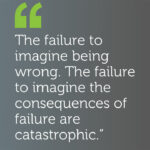You could be forgiven for thinking one news story last month was a digital-misprint. “Grenfell council spends more than £90k on bosses’ bonuses.” But closer reading revealed the headline was correct.
A Freedom of Information request to Kensington and Chelsea Council showed 12 employees in leadership roles received these bonuses. Housing staff received a further £130,000, in the year following the Grenfell Tower tragedy which killed 72 and left many then and even some now, without permanent homes. The Council’s response: "Our permanent staff are eligible for performance-related pay, based on individual performance, as set out in their legal contract of employment with us. This is rigorously assessed every year and the overall scheme is currently subject to a full review."
The explanation pales alongside the impassioned response of local groups, with one even recognising that council staff had been in a "difficult situation", but that homeless survivors had suffered from a "sub-standard public service". To pay a bonus to anyone at the council after Grenfell, just feels wrong. And in the court of public perception, the way people feel is key to reputation.
Financial headlines were similarly made by the Sackler family, who have now paused all philanthropy including donations to the National Portrait Gallery. It follows ongoing US legal action over production of a painkiller by the family’s Purdue Pharma company and its role in the opioid crisis. The Sackler’s continued charitable funding in the UK, has met with mounting criticism, with one artist threatening to refuse a retrospective due to a planned £1m gift to the National Portrait Gallery. The gallery’s initial response noted that “…it wouldn’t be appropriate for us to comment on projects which are still being discussed. The grant pledged by the Sackler Trust is going through our internal review process in line with our ethical fundraising policy and charitable objectives.” Taking money from an organisation with close links to an epidemic of pain killer addiction just feels wrong.
Both stories illustrate the challenge public and private sector organisations face around pay and funding. It goes without saying, there need to be carefully thought through messages when it comes to annual bonuses, salary and public information on who organisations accept support from. But even more important, is an understanding of the climate in which decisions are made and how this skews a finance/HR issue into a matter of public interest. When it does, the response needs to be swift, open and transparent. Public empathy for hard working council staff and dwindling government arts funding will vanish if people sense organisations are being less than up front. There must be a human face, ready to answer difficult questions and walk through the justification for the decisions made. Being authentic and truthful is essential. It won’t extinguish public outrage at breaking news, but when people are given the full picture it goes a long way toward recognising how they may feel and limiting long-term reputational impact.






